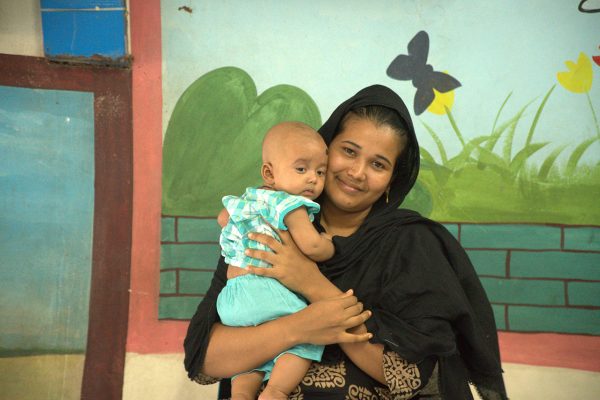COVID-19: Update from Asif Saleh (25 April 2020)
Reading Time: 2 minutes
Bangladesh is experiencing a rapid rise in new cases of COVID-19. Economic shutdown is continuing and hundreds of thousands of people have no income. BRAC has provided 198,069 families with cash support.
Read the latest on the situation in Bangladesh and BRAC’s response.
Dear colleagues, partners and friends,
The tally of COVID-19 infections continues to soar.
Starting 8 March 2020, it took 42 days to reach the first 2,144 infections. In less than a week the number has doubled.
Cases have been detected in 55 out of the 64 districts in Bangladesh. 85% of cases are in Dhaka division. Public health experts fear that asymptomatic cases are on the rise as transmission spreads across the country. All cases reported so far have been symptomatic.
Economic shutdown continues. The ‘general holiday’ has been extended until 5 May 2020.
More than 700,000 artisans have no income. They have missed Bengali New Year, one of the largest annual festivals in Bangladesh. As the red and white coloured clothing made for this festival is very specific to the occasion, these products will be difficult to sell throughout the rest of the year. There is now a real danger that the artisans are going to miss the biggest festival of the country, Eid-ul-Fitr (a religious event), where more than 60% of their annual sales volume comes from. The government has not yet extended any support to these artisans.
Thousands of fish farmers continue to suffer losses because communications between districts have been disrupted. It remains uncertain whether they will be able to keep up with loan repayments or recover the investments they have made on hatcheries, feed and fingerlings.
A guideline for reopening ready-made garment factories is being developed by the Department of Inspection for Factories and Establishments, with guidance from the International Labour Organization. The plan to reopen factories on 26 April has been postponed.
The flow of remittance to Bangladesh is projected to fall by 22%, from USD 18.32 billion in 2019 to USD 14 billion in 2020. Millions rely on this money sent back by family members working abroad. Unlike in most neighbouring countries, most of the people sending money originate from rural households living in poverty. Remittance plays a crucial role in poverty reduction in Bangladesh. A fall in remittance is likely to plunge many households into poverty.
5,400 schools in the haor (wetlands) regions are being used to accommodate labourers harvesting paddy. Every year people from other districts migrate for a month to the wetlands to work in the harvest. They stay inside the villages. This year, to avoid cross-district infection, these people will be housed in schools.
Monsoon preparedness and mitigation measures in the camps in Cox’s Bazar are being delayed due to the lockdown. Heavy rainfall and landslides threaten thousands of households. Last year, more than 16,000 people were displaced within the camps during monsoon season.
BRAC has been testing the viability of sending emergency cash support via mobile money transfer. Key lessons learnt from our ultra-poor graduation programme are in the report.
Working in close coordination with the government and community-level organisations, BRAC has provided 198,069 families with cash support.
Read the full report here.





